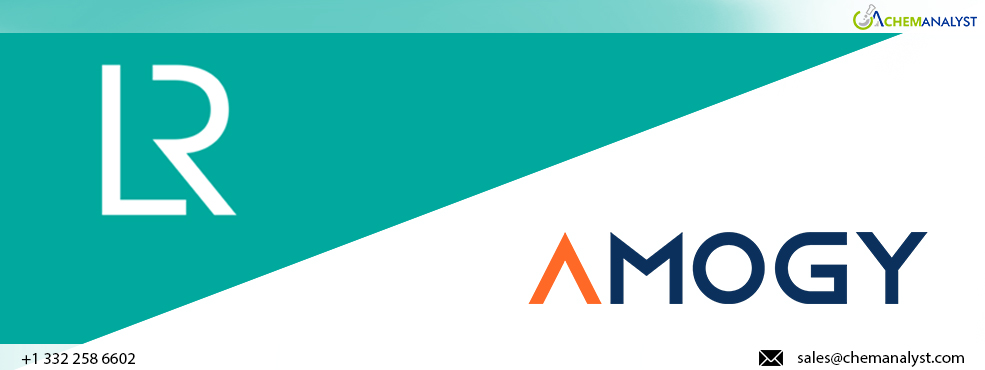Welcome To ChemAnalyst

UK classification society Lloyd’s Register (LR) has embarked on a joint development project (JDP) with Norway’s Rotoboost and the U.S.-based Amogy to explore emissions reduction opportunities using fuel cell and pre-combustion carbon capture storage (CCS) systems. The project aims to assess the potential of hydrogen fuel cells, ammonia and methane cracking technologies, and CCS from technical, financial, and regulatory perspectives.
The study focuses on three key technologies: Amogy’s ammonia-to-power system, Rotoboost’s Marine Hydrogen production technology, and PowerCell’s Marine System 200 hydrogen fuel cell. LR’s evaluation will determine how these technologies can reduce emissions and costs for a specific container feeder fleet, considering the EU’s Emissions Trading Scheme (EU ETS), FuelEU, and the International Maritime Organization’s (IMO) Carbon Intensity Indicator (CII) requirements.
Jack Spiros Pringle, Lead Consultant in Business Advisory at Lloyd’s Register, highlighted the significance of the JDP for alternative propulsion methods. He noted that the project represents a major step for shipowners aiming to comply with new EU carbon market standards and international regulations. LR is working with partners to validate these cutting-edge energy solutions and confirm that they provide significant savings and advantages.
Amogy’s CEO Seonghoon Woo emphasized that Amogy’s ammonia-to-power systems offer a clean energy solution for maritime applications. He pointed out that adopting this system could provide a competitive advantage by reducing carbon emissions, avoiding European carbon taxes, and enhancing compliance with CII regulations.
Kaisa Nikulainen, CEO of Rotoboost, discussed her company’s Marine Hydrogen technology, which not only produces solid carbon as a byproduct but also makes LNG a viable compliant fuel in the long term. She highlighted the technology’s economic viability and environmental benefits, noting that it bridges the gap between sustainability and cost-effectiveness.
In 2023, Rotoboost received LR’s approval in principle (AiP) for its Rotobox pre-combustion CCS. This system uses a thermocatalytic decomposition process (TCD) onboard marine vessels to convert a portion of the natural gas fuel into hydrogen and graphite with a liquid catalyst. The process aims to greatly reduce CO2 emissions, particulate matter, and methane slip by generating hydrogen and capturing carbon in solid form.
In contrast, LR issued Amogy a feasibility statement for its Technology Qualification Plan (TQP) process in February this year, detailing the comprehensive component testing Amogy needed to undertake.
The TQP comprises three stages: Verification, Validation, and Performance Review. The Verification phase was conducted in 2022, and Amogy concluded this initial phase with LR by the end of 2023.
We use cookies to deliver the best possible experience on our website. To learn more, visit our Privacy Policy. By continuing to use this site or by closing this box, you consent to our use of cookies. More info.
